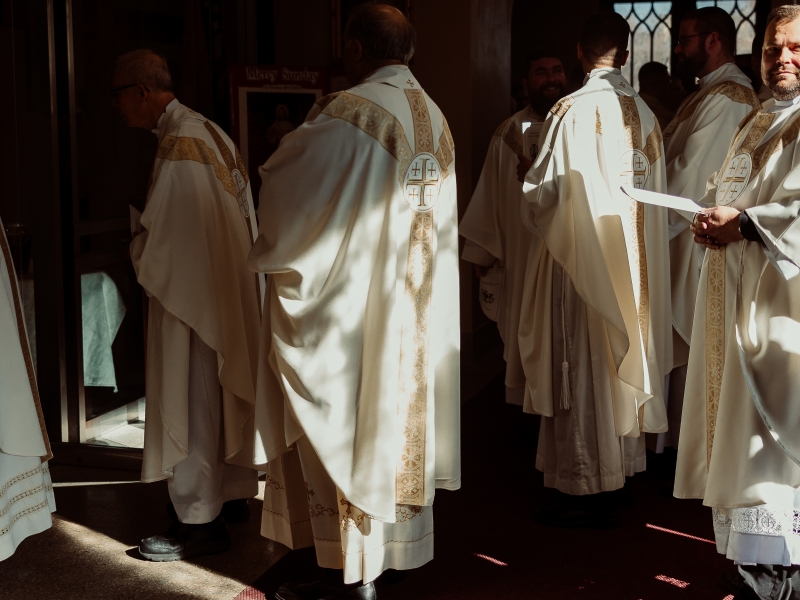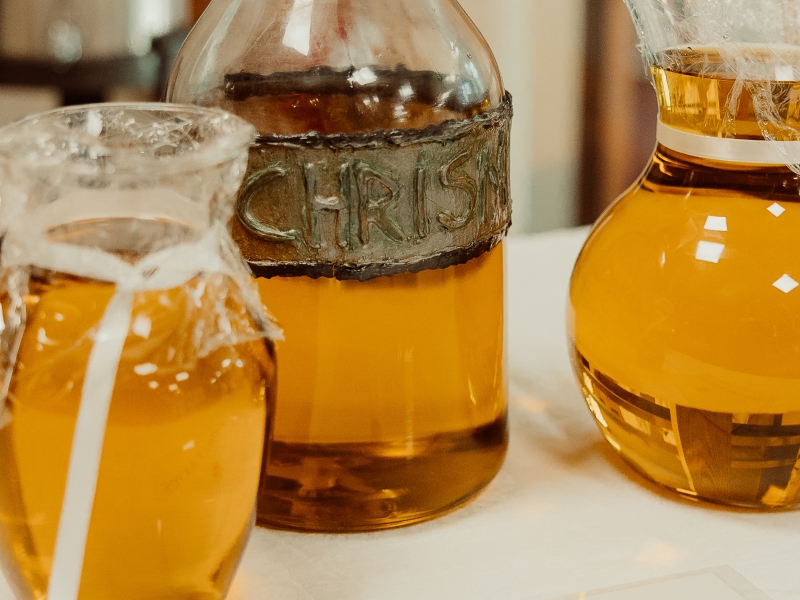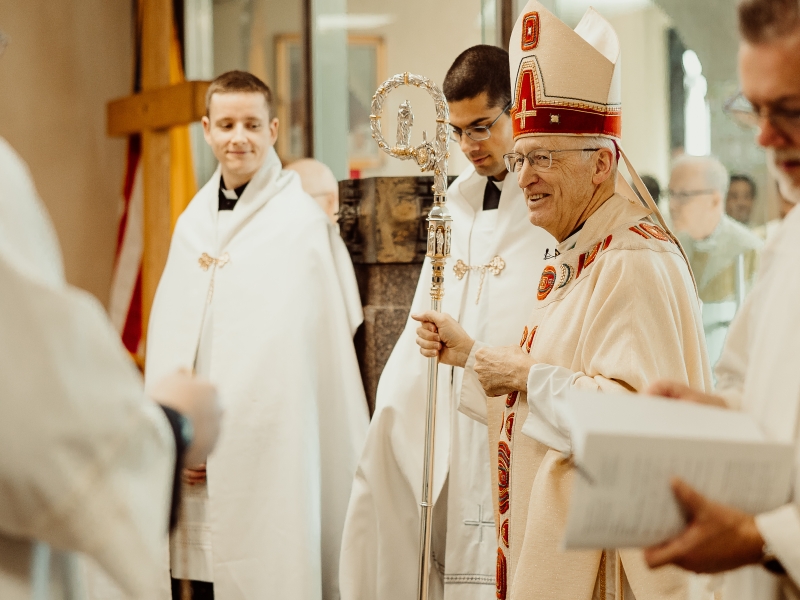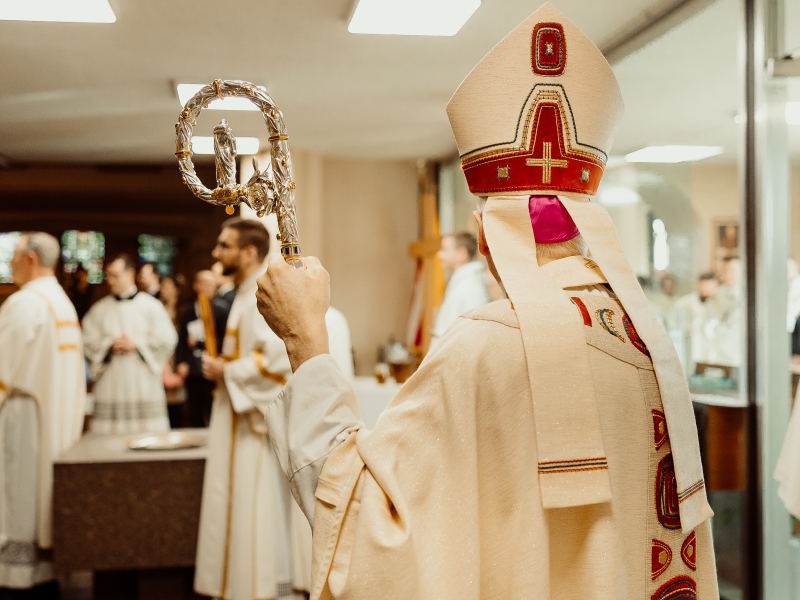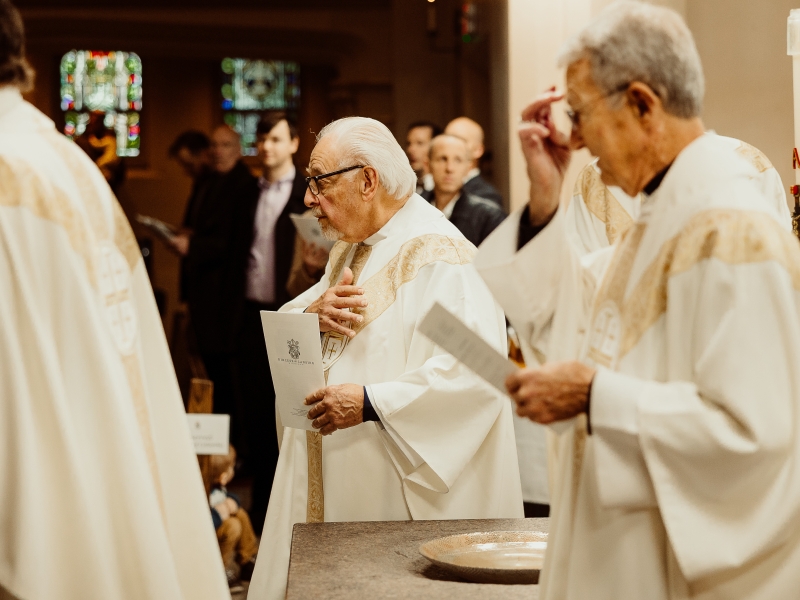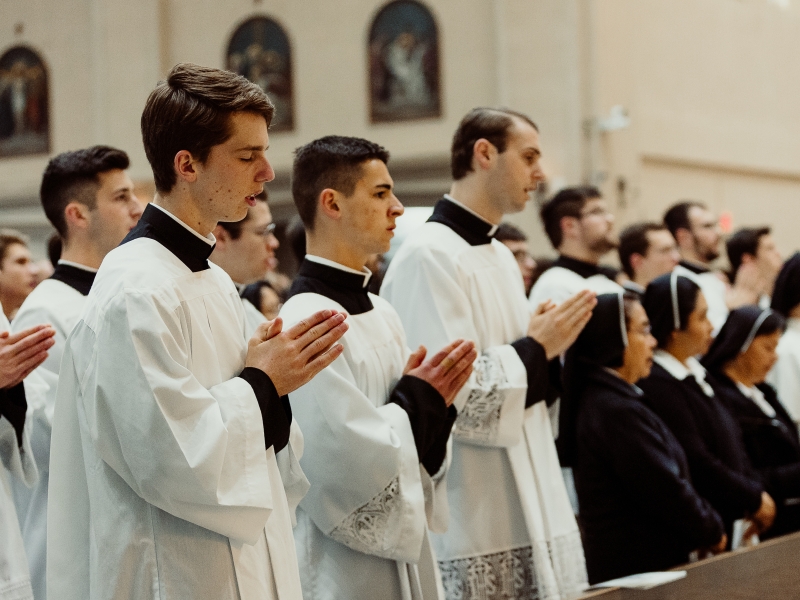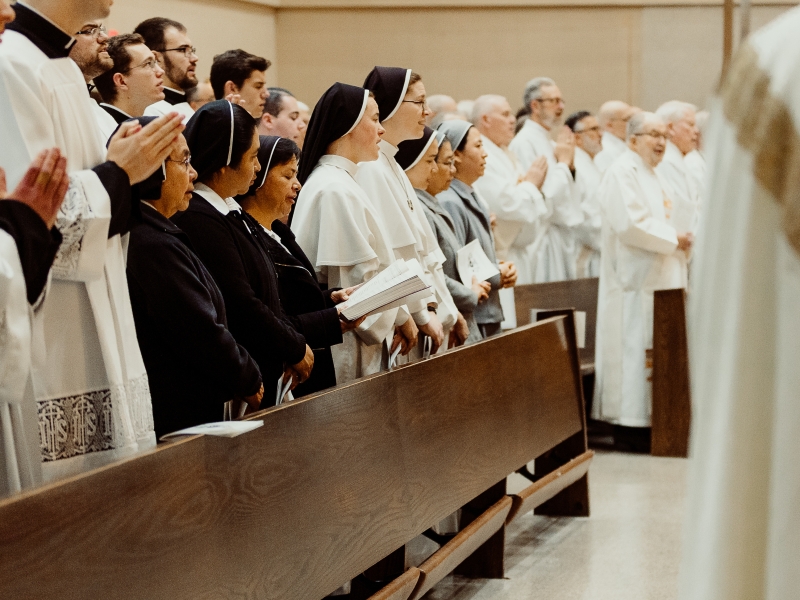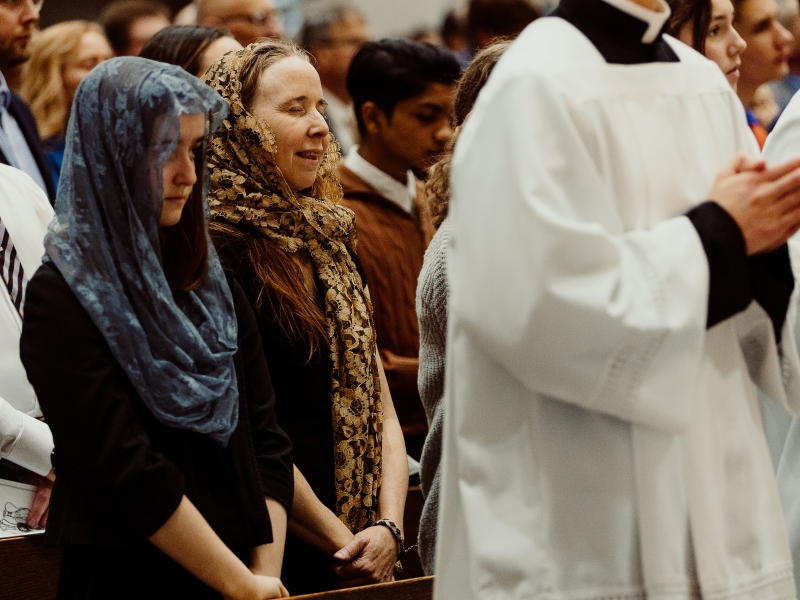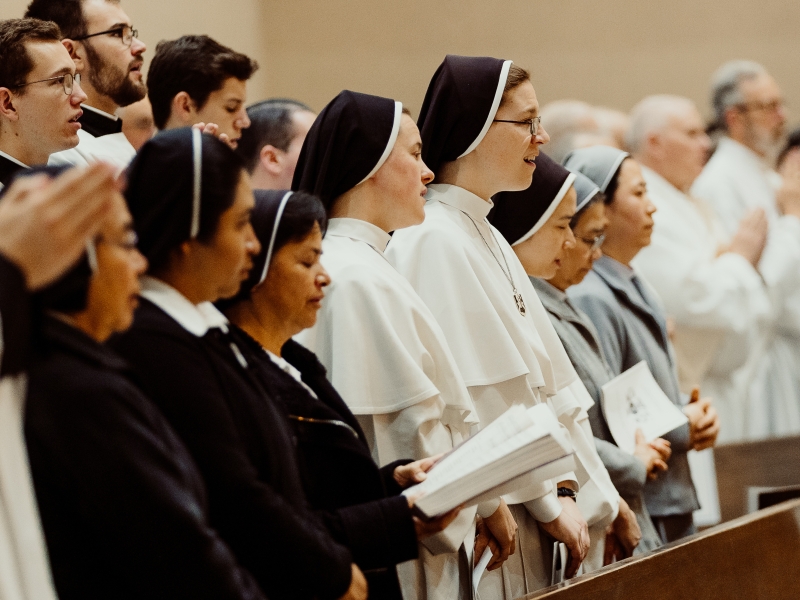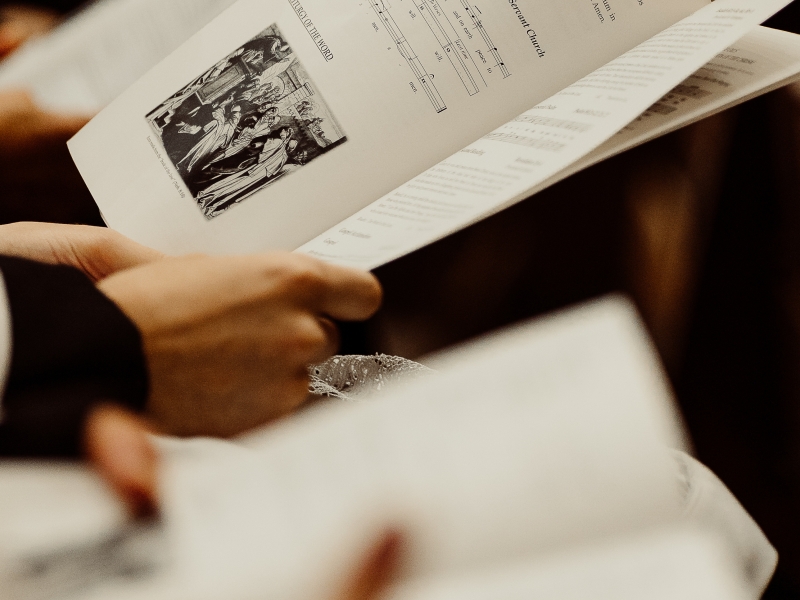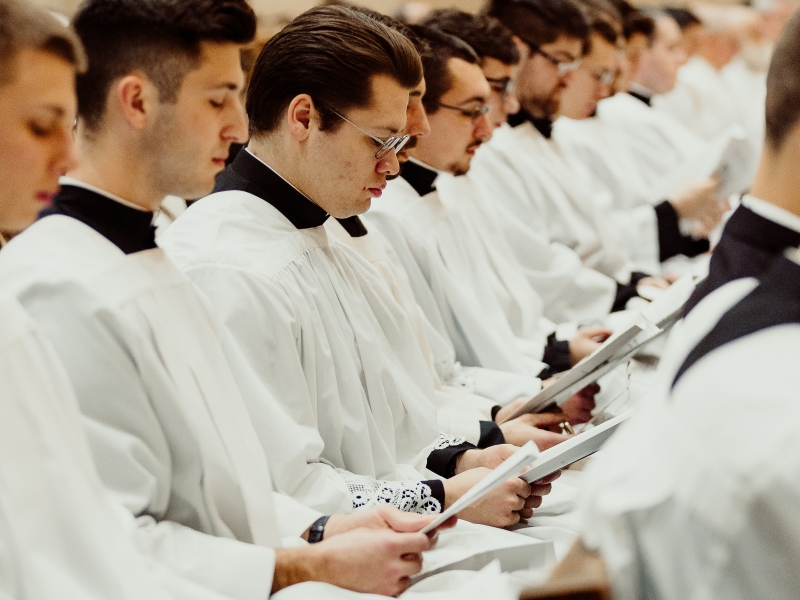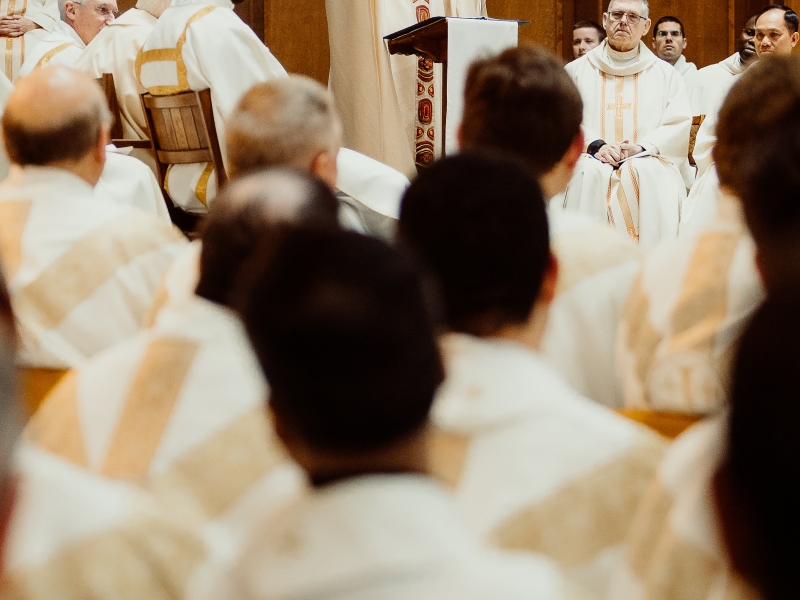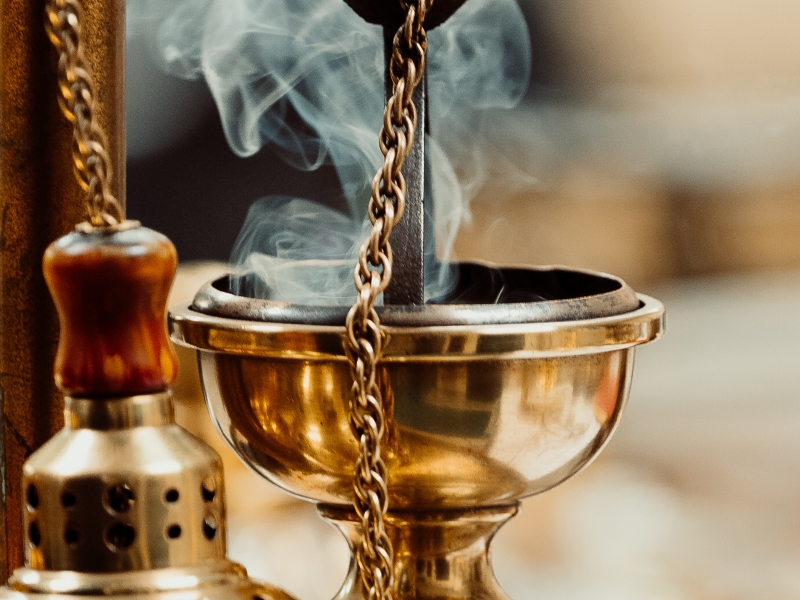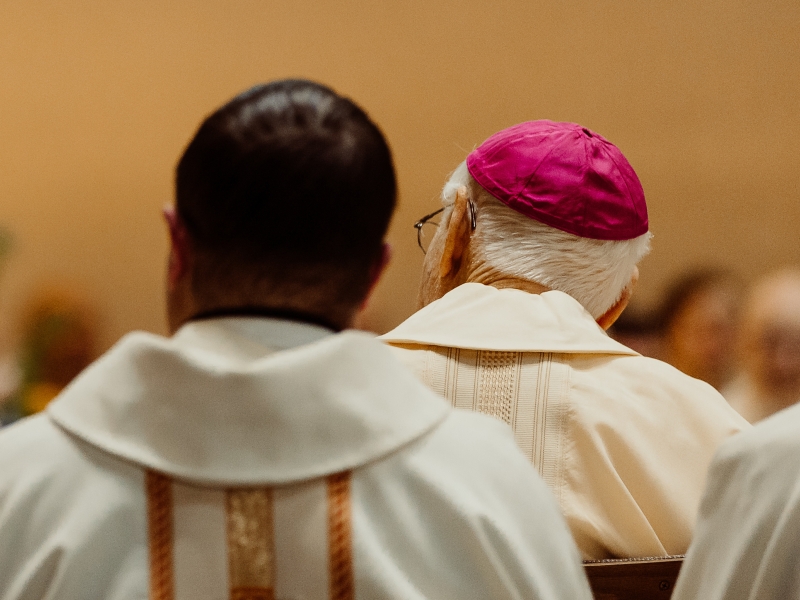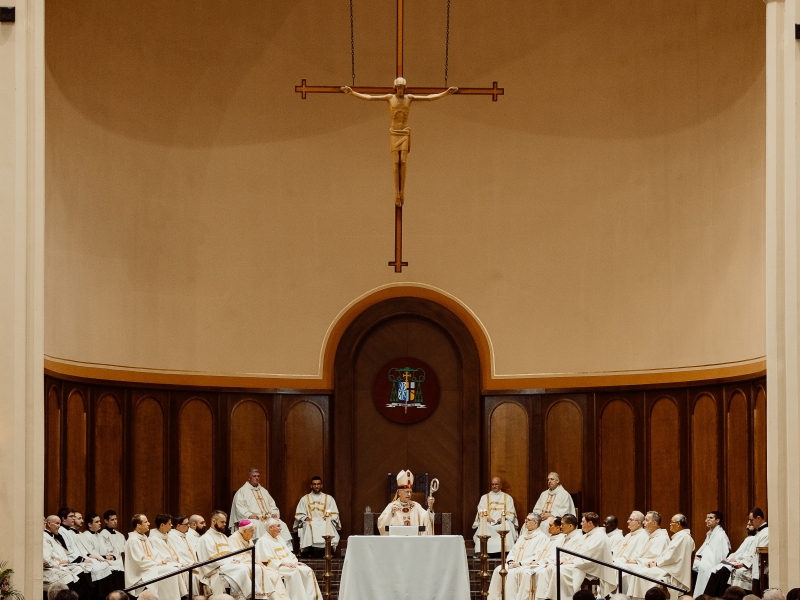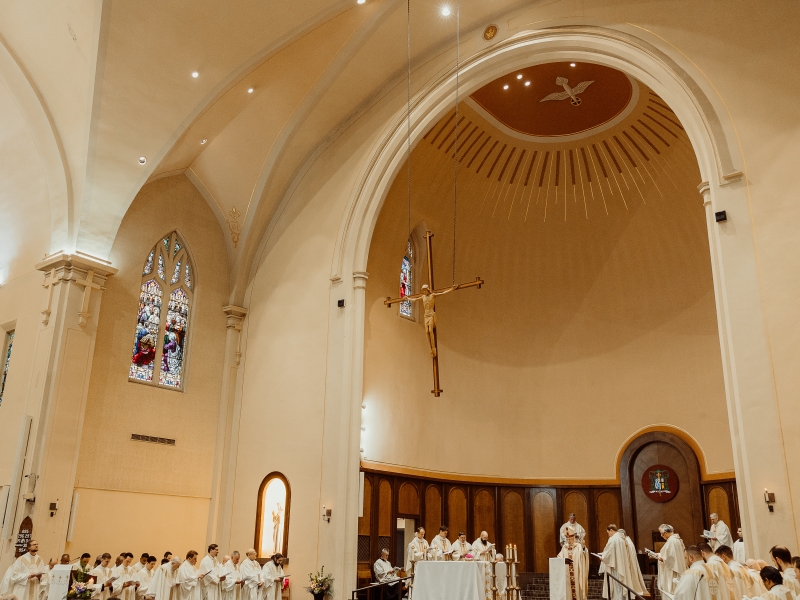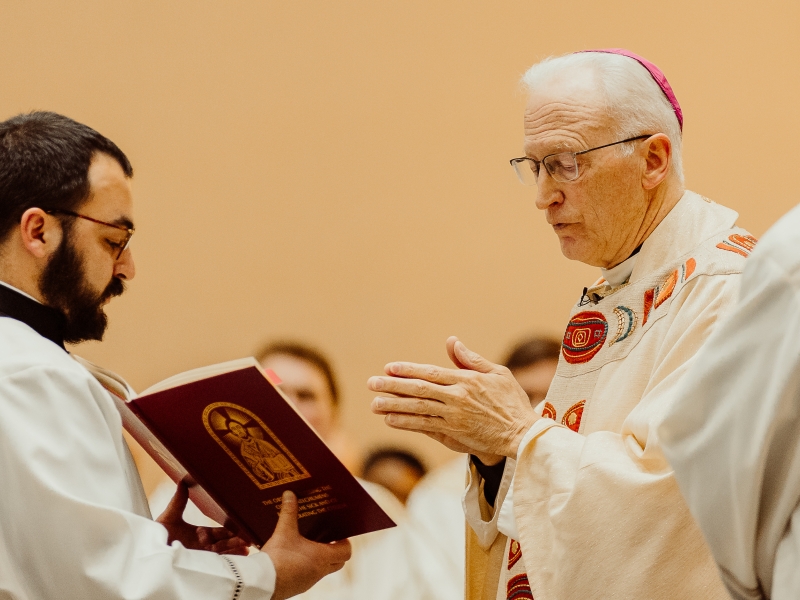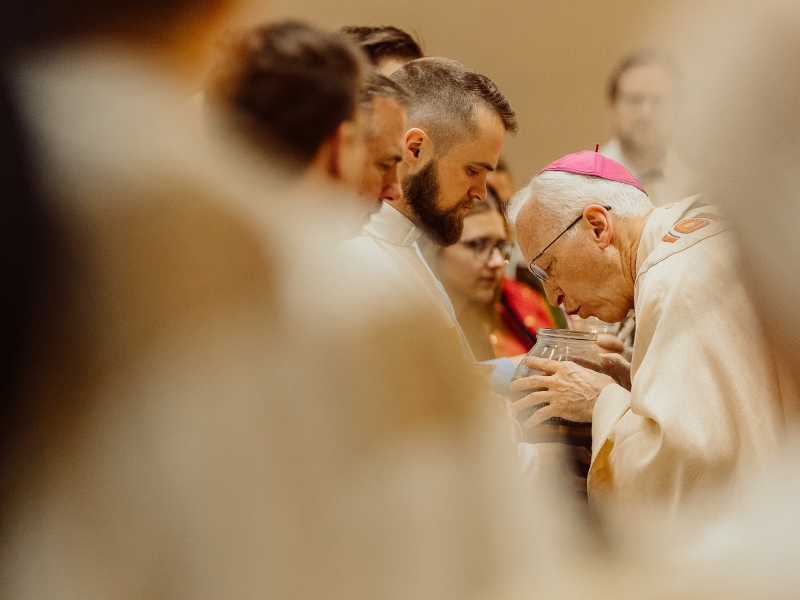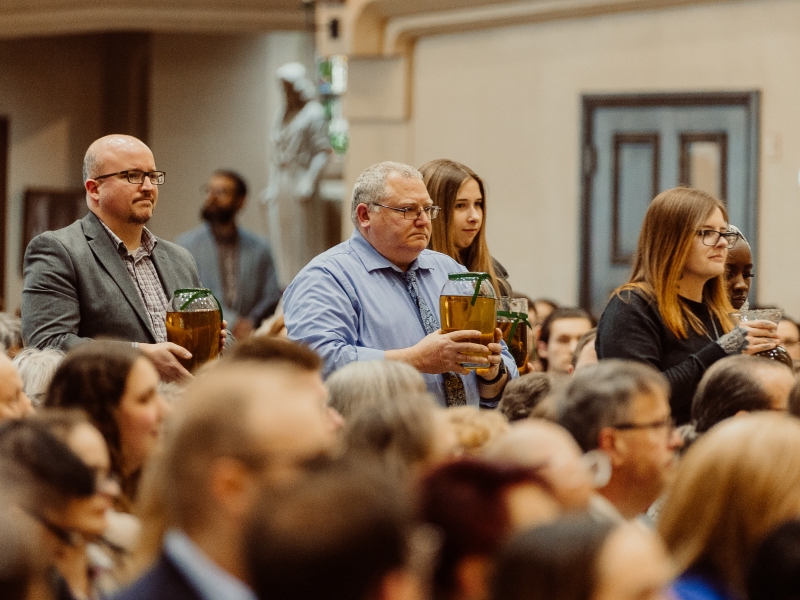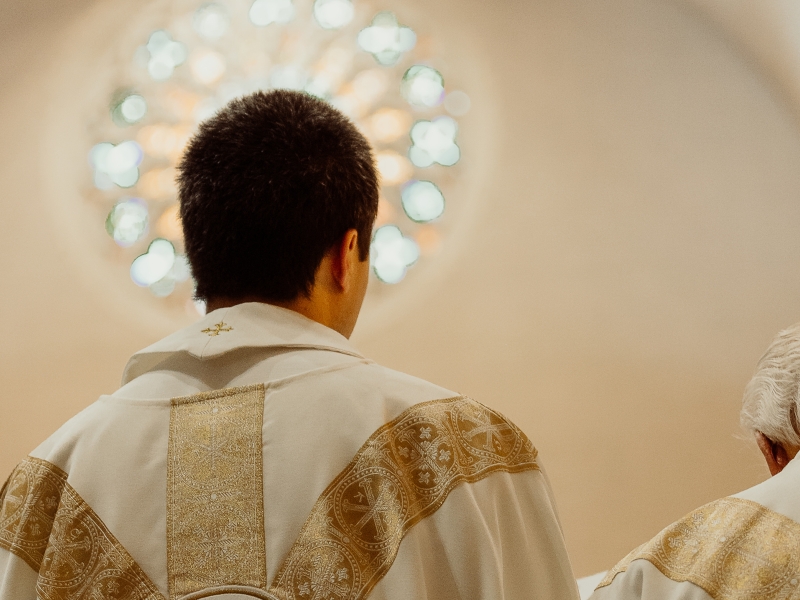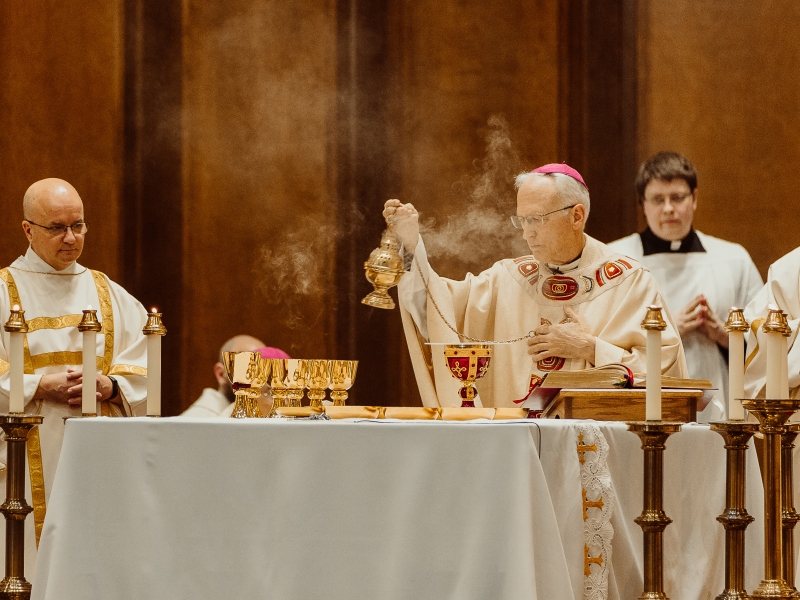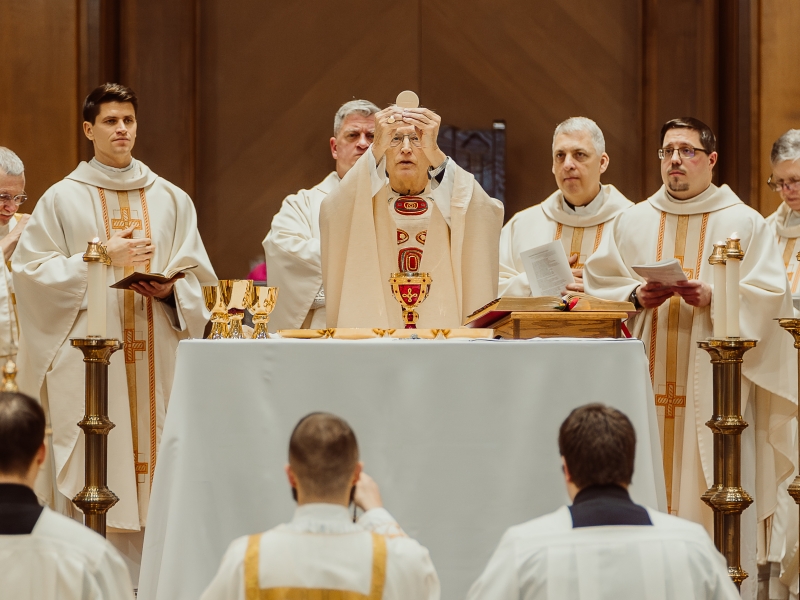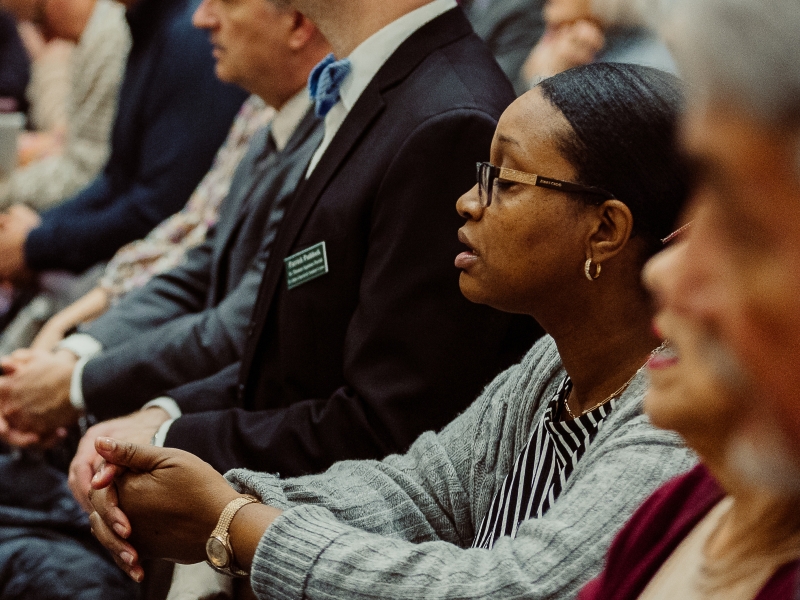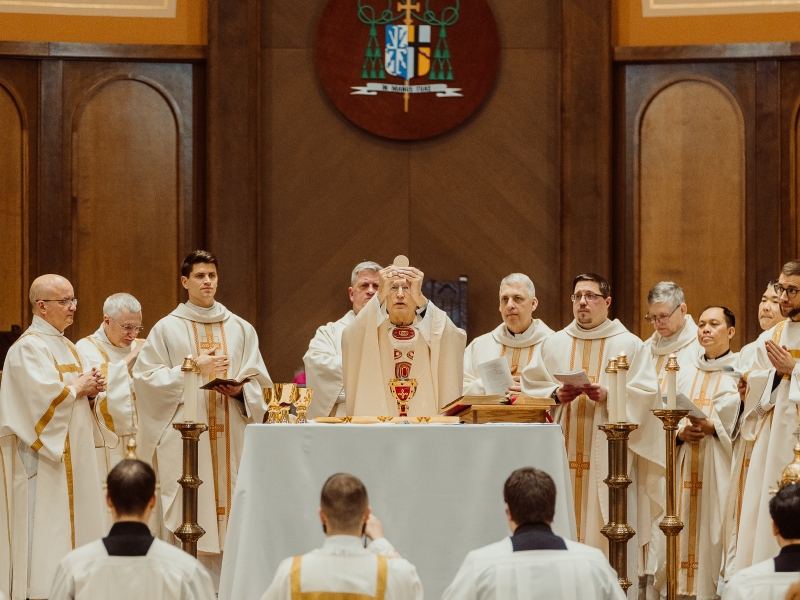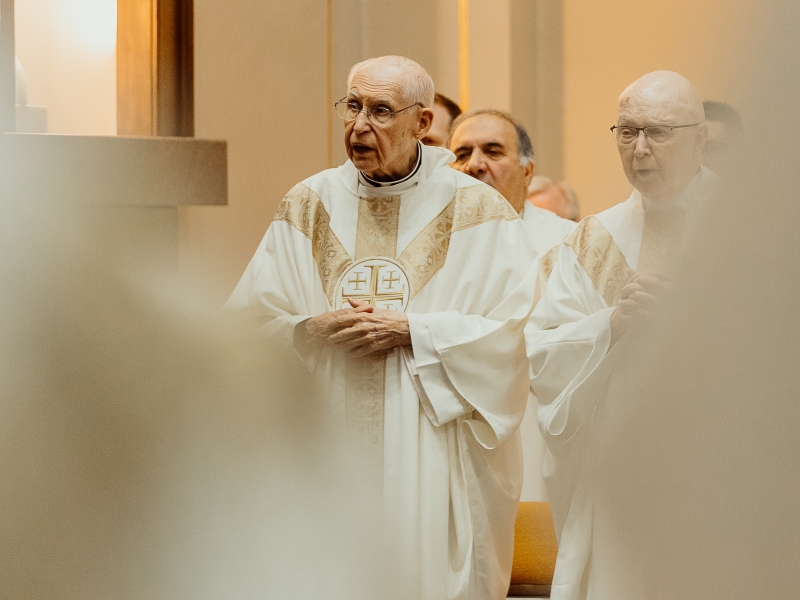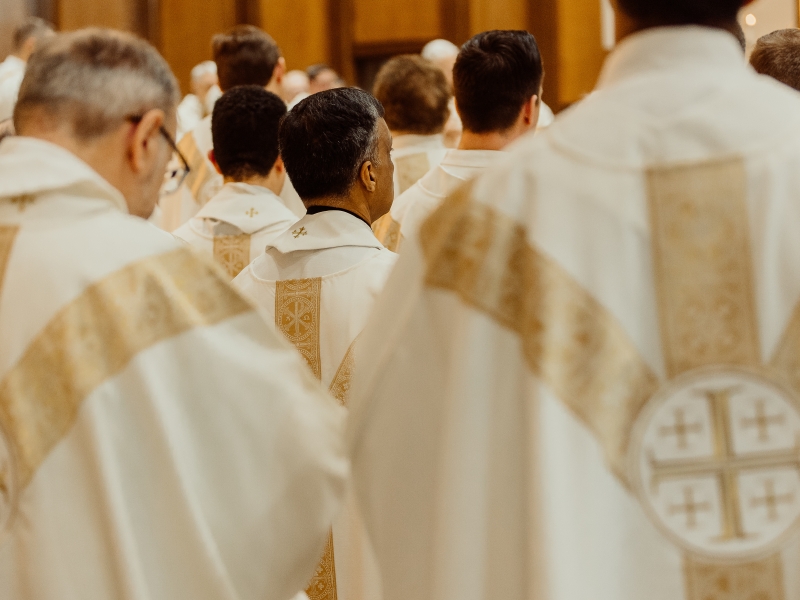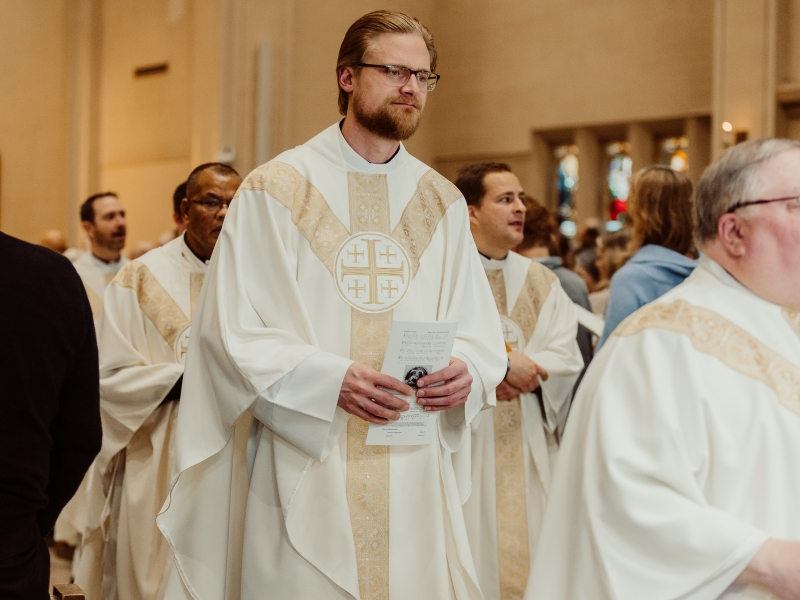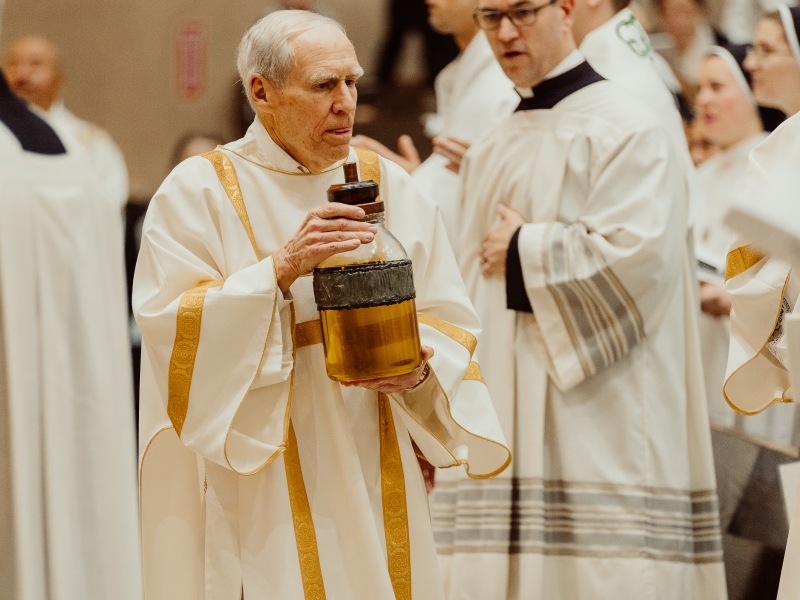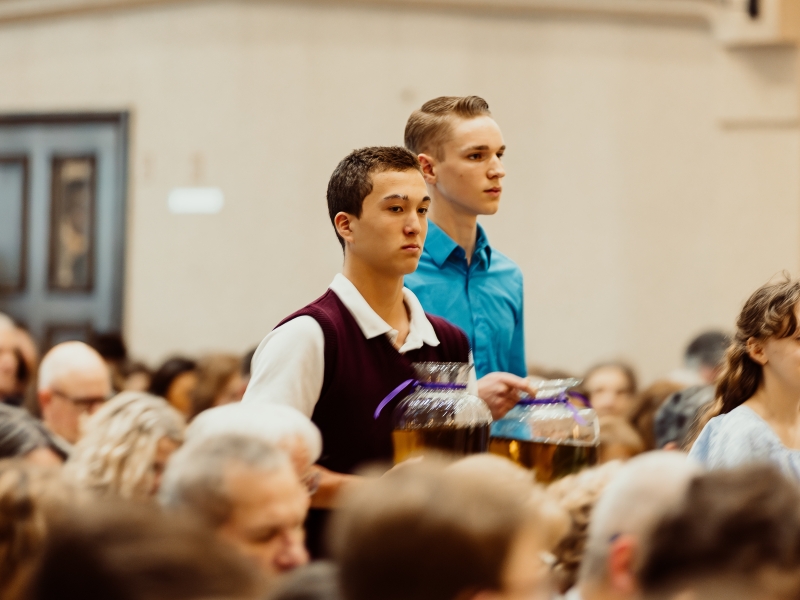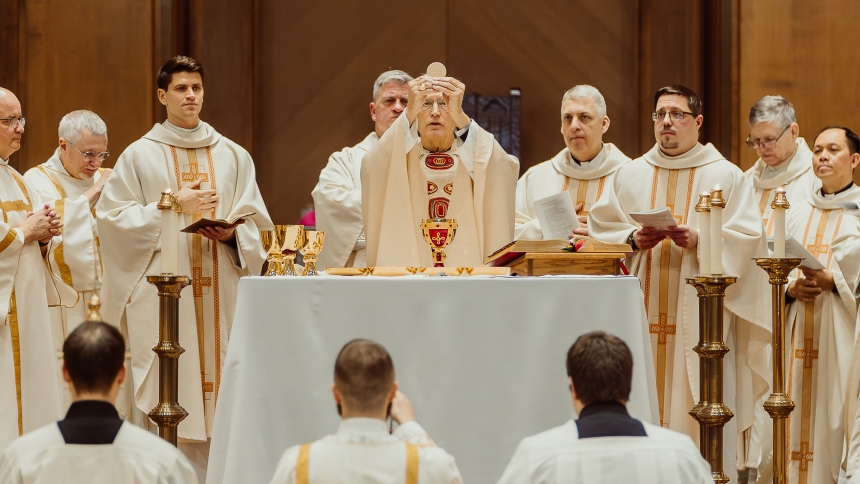
Here are some great images capturing the sights and sounds of this morning’s Chrism Mass, Holy Thursday, March 28, as the priests of the Diocese of Lansing gathered at a packed Saint Mary Cathedral in Lansing to concelebrate Holy Mass with Bishop Earl Boyea who encouraged his brethren to embrace the challenge and reality of being “a priest forever”.
“According to the Letter to the Hebrews, Jesus, by dying and rising from the dead, has become a priest forever according to the Order of Melchizedek – let us use this understanding of Jesus’ priesthood as a prism to look at our share in that priesthood,” explained Bishop Boyea.
“To be in the Person of Christ ‘forever’ means, my brothers, that no place is outside our concern and evangelizing mission. True enough, prudence, discretion, temperance, and patience are virtues we need in confronting and exercising our priestly ministry in this or any new place. But we are to go forth.”
The annual Chrism Mass traditionally occurs upon the morning of Holy Thursday. The concelebration of Holy Mass by the priests of the diocese is an expression of their communion with their bishop. During the sacred liturgy, the diocesan priests also renew their priestly promises.
“Our rectories need to be bases of operation, not bastions for defense. Our parishes need to be lights to those in darkness, not trenches where we hunker down. Our schools need to be disciple makers, producing saints and scholars, not places of escape,” said Bishop Boyea to his priests.
“Let us not have a ‘listless spirit’ but ourselves embrace a ‘glorious mantel’ that we may share that will all with whom we walk.”
Today’s Chrism Mass also saw Bishop Boyea consecrate the three holy oils that will be used in parishes across the Diocese of Lansing in the year ahead. The oil of chrism is used to anoint the newly baptized, to seal the candidates for confirmation, and to anoint the hands of presbyters and the heads of bishops at their ordination, as well as in the rites of anointing pertaining to the dedication of churches and altars. The oil of catechumens is used in the preparation of the catechumens for their baptism. The oil of infirmorum is used to bring comfort and support to the sick in their infirmity.
* Text of homily by Bishop Earl Boyea, Chrism Mass, Holy Thursday, March 28, 2024, Saint Mary Cathedral, Lansing:
My sisters and brothers, let us extend thanks now to some in our midst today. In particular, thanks to Bishop Mengeling. Again, my deepest thanks to my brother priests and deacons who serve our people so well. Congratulations to Fr. Andrew Czajkowski, on his 50th anniversary of ordination and to Frs. Robert Copeland and Robert Pienta, on their 25th anniversary. This also happens to be the 25th anniversary of Bishop Vincke. Thanks as well to the consecrated men and women of our diocese as well as to all the laity engaged in so many ministries. Many thanks to the married folk of our diocese who have sustained a strong Christian family life over this past year. Many thanks to the staff of the Cathedral and to the Diocesan Staff, as well as to our choir from Siena Heights University and all those serving us today in this liturgy. Finally, many thanks to all of you, my sisters and brothers of this diocese. Your faith and prayers sustain us; your love encourages us; you hope points us to the one who is our all. Before moving to a few reflections, I express my encouragement to all the elect who seek to be baptized this Saturday as well as those who are to be received into full communion in the Catholic Church. I pray that your admission to the Church, the Body of Christ, will fully respond to all your own deepest desires. For, know that God has planted those desires in you!
Now, as in the past, I beg your forbearance as I speak particularly to my brother priests today.
According to the Letter to the Hebrews, Jesus, by dying and rising from the dead, has become a priest forever according to the Order of Melchizedek (6:20; 7:11-8:1). Let us use this understanding of Jesus’ priesthood as a prism to look at our share in that priesthood. And I wish to focus specifically on that word, “forever,” “You are a priest forever.”
“Forever” indicates eternity. This is applied to the ministry of Christ, and thus to our own ministry and, by analogy, to the ministry of the priesthood of all the faithful. This “forever” includes not just all time, but all space, all place, everywhere. There are no limits to the priesthood of Jesus Christ. This can be for those ordained into his priesthood both a blessing and a cross.
There is never a time, my brothers, when we are not priests. Even though Jesus announced a “year acceptable to the Lord,” citing the prophecy of Isaiah and his “Year of Favor,” that year for us is every day and every night. It does not end in 365 days. We talk about a day off or retirement (some of us more than others). And yes, we do need rest and serenity. We do need to recoup our energies. We certainly need sustained time in silent prayer and contemplation. Still, there is no day off; there is no retirement from imaging the Lord’s priesthood.
So, brothers, our role is to be those announcers of a “year of favor from the Lord and a day of vindication by our God,” as Isaiah puts it, at every time and all times. This, of course, is not easy. And we all fail, including myself. Most of us like to compartmentalize our time, figuring this is for the Lord and that is for me. In this latter circumstance, each of us needs to turn to Jesus, the one in whose person we are ordained, and give him anew this day and this hour and this minute.
This will enable us to call the entire People of God to their own priestly duty of living the Gospel in every moment, of being the yeast which never ceases to raise the entire dough in which they find themselves. If Jesus could say, “Today this Scripture passage is fulfilled in your hearing,” and if all the People of God are to be on-going bearers of liberty to captives, then what does that call forth from us, dear brothers? Every moment for us is today and the one “who is and who was and who is to come” is ever seeking to be manifest in our lives.
This brings us to the second aspect of “Forever.” Not only is every time our time, but every place is our place. Cardinal Newman in preaching at the opening of a new seminary in 1873 pointed out the many obstacles being faced by the Church and by future priests in his day (Sermon 9, “The Infidelity of the Future”). One of these hindrances is also descriptive of our times: “Christianity has never yet had experience of a world simply irreligious…. [C]onsider what the Roman and Greek world was when Christianity appeared. It was full of superstition, not of infidelity…. [T]here was no casting off the idea of religion…. But we are now coming to a time when the world does not acknowledge our first principles…. My brethren, you are coming into a world…such a priests never came into before, that is, so far forth as you do go into it, so far as you go beyond your flocks, and so far as those flocks may be in great danger as under the influence of the prevailing epidemic.”
Newman does not want those seminarians to hide, to circle the wagons, to limit their presence. Rather, he even encourages them to go beyond their flocks. To be in the Person of Christ “forever” means, my brothers, that no place is outside our concern and evangelizing mission. True enough, prudence, discretion, temperance, and patience are virtues we need in confronting and exercising our priestly ministry in this or any new place. But we are to go forth. Our rectories need to be bases of operation, not bastions for defense. Our parishes need to be lights to those in darkness, not trenches where we hunker down. Our schools need to be disciple makers, producing saints and scholars, not places of escape. The entire People of God will imitate this venture of ours, brothers. Let us not have a “listless spirit” but ourselves embrace a “glorious mantel” that we may share that will all with whom we walk.
In that Spirit, may we now joyfully renew our priestly commitment this day in the presence of all of the People of God to whom God has sent us.
Then may we boldly use the oils we bless today to anoint our people that they too may be priestly in a world in need of the witness which only they can provide.
God bless you all.

